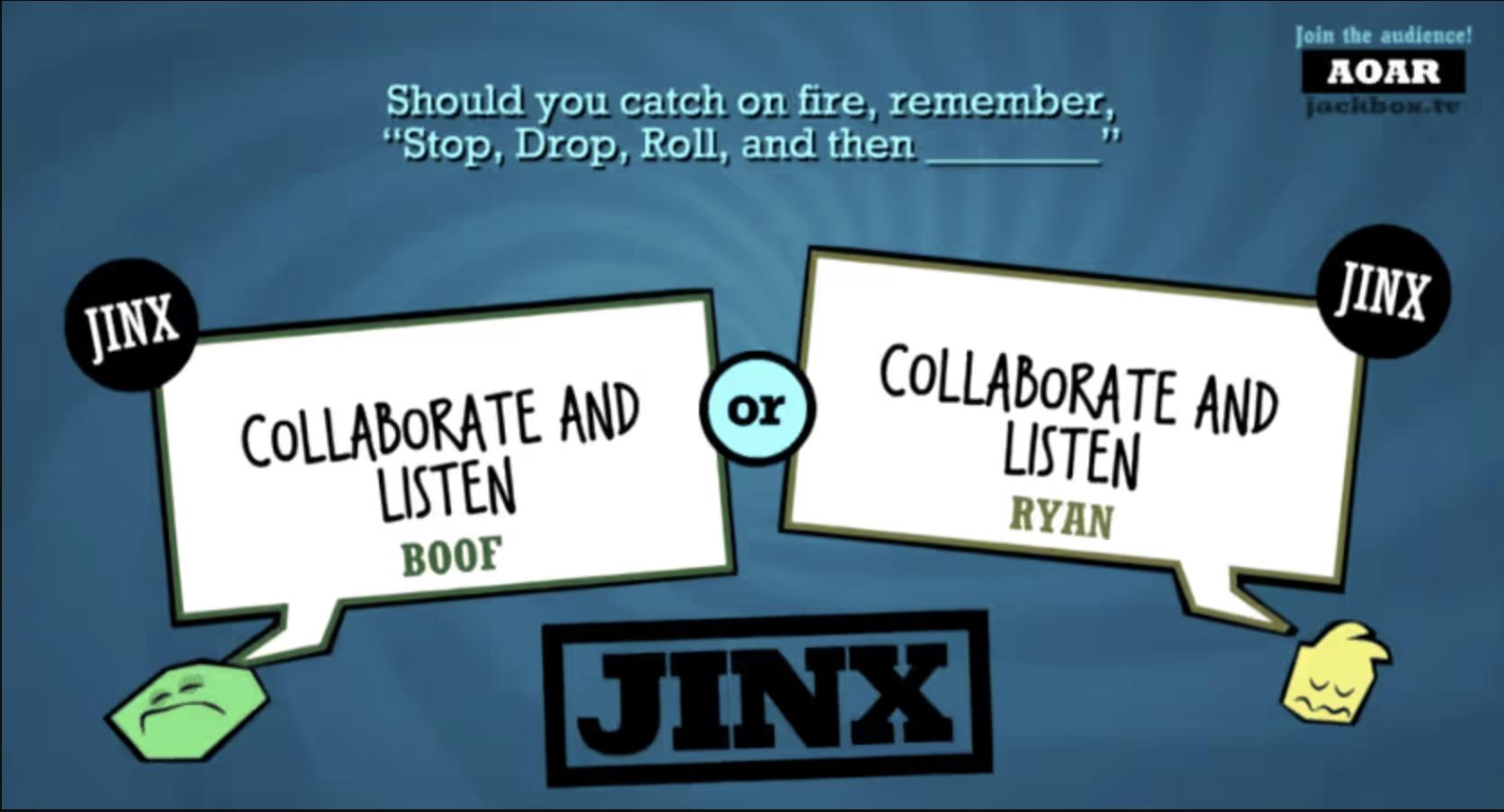Quiplash is a party game created by the studio Jackbox, and is played using a TV and smartphones. The target audience of this game is english-speaking young adults and teenagers. The game involves players judging between their fellow players’ responses to a prompt in a one-on-one format. Typically players give humorous responses to the prompts, and the funniest responses win. The mechanic of judging in this game is used as an incentive for players to appeal to the personality and humor of their fellow players, which creates a dynamic that mainly depends on the initial closeness of the players.
The game attempts to create a safe environment for gameplay, but this is often ultimately unsuccessful. In Jackbox’s description, they say, “There are no rules or correct answers.” While this is true, from my own gameplay experience, players feel an immense pressure to give funny or successful responses. For example, in each round of judging, players don’t know who wrote which response until all players have judged. This mechanic is aimed to create fairness and relieve the pressure of your fellow players judging you. But the gameplay dynamic that manifests from this mechanic is dependent on the preexisting dynamic of the players. Players must leave behind their identity and solely appeal to the personalities of their fellow players. This dynamic can ultimately be dehumanizing and ineffective at creating fellowship. The same can be said about the mechanic of default answers. The game provides default options for answers to the prompt that the player can choose if they can’t think of a good response. However, these responses are rarely funny, and the game reveals when a player chooses these options. This can be embarrassing for players, motivating them not to use these default responses. Again, although these responses are supposed to relieve pressure on players, they are ultimately useless.
The game is most successful when players know each other well. This is because players’ scores and the enjoyment of the game is dependent on players’ understanding of what will make their fellow players laugh. In runtime, players often reference inside jokes in their responses, such as naming specific people or moments. This type of fun is mainly based on fellowship with other players. The most successful players are those that can anticipate what will make their fellow players laugh or shock them. This dynamic is mainly formed from the random nature of the prompts given to the players. See an example of a prompt during gameplay in the image below. Because these questions are so unpredictable and players must respond to them quickly, most players choose to reference jokes between their groups. This is useful when players know each other well, but if they do not, then these references will not land. Or they will leave out specific players, creating rifts in players’ friendships.

(image from https://www.jackboxgames.com/games/quiplash)
Overall, although these games can be fun for groups of close friends, it can end up being stressful for players that have just met and do not know each other well. Players must be hyper-aware of the personalities around them and how to best appeal to these personalities. Although this game promotes fellowship between players, it requires a level of pre established fellowship in order to be successful.
(cover image from https://www.jackboxgames.com/blog/the-science-of-creating-a-quiplash-prompt)



